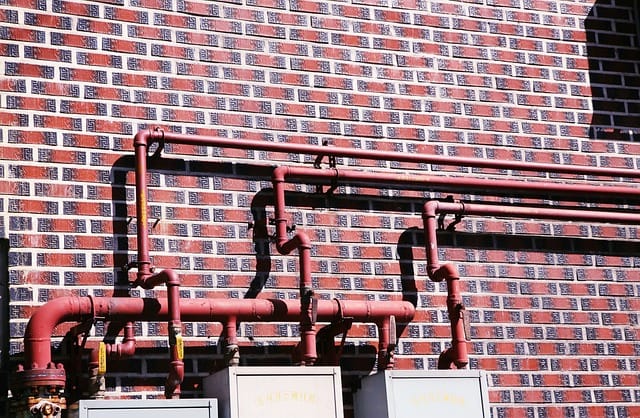
Triple-wall pipe chimneys are insulated pipes made of metal. This is an opening that lets the products of combustion enter the home. Stove pipes aren’t insulated. They come in two varieties: single-walled pipe and rockwool floor insulation (these days, there are double-walled pipes that have insulators).
In the same way, Chimney pipes are available in two types: triple wall and double wall. Insulated pipes are classified as Class A vent pipes. Sometimes, manufacturers will specify the kind of pipes they use on their labels in accordance with your region’s specific building codes. Specifications are listed according to the stove’s model or the kind of fuel used.
In this respect, triple-walled stove pipes are the best choice for safety operations that meet the requirements set by the standards. The specifications for UL standards demand a pipe capable of sustaining secure operations. The pipe should conform to UL Standard 103, or 103HT, with an interior temperature that is at least 1000 degrees Fahrenheit and can sustain up to 1750 degrees Fahrenheit.
Pipe insulation is frequently neglected and misunderstood by homeowners, yet it plays a vital role in the plumbing system. Understanding how and where to put it in your home will help increase your efficiency in energy while also increasing its value to your house. Modern pipe insulation is constructed with a wide range of components that each have their advantages and drawbacks. Some of the most common kinds are:
- Mineral wool
- Glass wool
- Rubber
- Rigid foam
- Polyethylene
Before the 1970s, homes used asbestos-based insulation on pipes. Asbestos was once a common insulation material, but is not used anymore because numerous studies and tests have proved that it’s detrimental to health.
Rockwool flexi slab has been linked with numerous serious illnesses, like asbestosis, cancer, and mesothelioma. If you reside in an old home and are concerned that the pipe insulation inside your home may be asbestos, consult a professional immediately and request a replacement.
Thermal Insulation
Certain areas in the US have winters that are so cold that the water could freeze when it is inside pipes. This could cause burst pipes, which could result in costly repairs and replacements, which is why it is crucial to have good insulation to keep the water moving.
Insulation slows down the passage of heat through the pipe to the cooler climate outside, preventing the inside liquid from freezing. When installing insulation in cases such as these, it’s essential to make sure there are no spaces that might open the pipeline to cold air.
Energy Saving
Rockwool Flexi can dramatically enhance the effectiveness of a water heater as it reduces the volume of heat that is lost to the surroundings. The heat escapes through the pipes into the surrounding environment, causing the temperature of the hot water to drop, and also increasing the amount of time required to get the water heated up after the faucets are open.
This is particularly evident in the cold winter months, when the temperature of water heaters may fall dramatically.
By insulating hot water pipes, you can increase the temperature of the water by 2 to 4 percent, which will allow you to reduce your setting for your water heater. Because the water is heated faster, you don’t need to turn on the faucets for as long. Also, with lower settings, the water heater uses much less power to heat and keep the water warm.
What You Should Know Before You Begin the Process of Insulating Copper Pipes
Copper piping is currently the most commonly used material for plumbing in homes and air conditioning because of its ability to resist corrosion. Copper is able to run hot and cold freshwater as well as cold and hot water without pitting.
This is why it’s the ideal alternative to brass and galvanized pipes. However, it is also a superb conductor of heat. Copper is the second-most effective natural metal heat conductor because it is able to transfer heat energy from a warm region to a cooler one.
While it’s great for certain applications, it’s not the best choice for hot pipes of water in the winter months. If the insulation isn’t adequate, there is a significant amount of heat energy that goes away in the course of water as it travels through the copper pipes.
Insulating rockwool fires can help the water inside your home warm up quicker, stay hotter for longer, and cut down on energy costs by quite a lot. You may also have the ability to get more hot water from your tap than you used to, perhaps by a few degrees.
Pipe insulation is available in four kinds. The fiberglass spiral wrap is the least expensive of the pipe insulations and comes with the lowest value of insulation for your pipes. While any insulation is superior to none, this is a cheaper, harder-to-install type, which is rarely worth the cost.
Insulated PEX Pipe and Its Advantages
PEX pipes can be beneficial over conventional tubing and piping systems for any cooling or heating application. Additionally, it enhances the benefits of incorporating them into the various applications in your office or home. It is just as flexible as other Triple Wall Pipe, which is why it is able to offer many benefits similar to conventional piping.
Insulated pipe requires smaller joints, and therefore, no leakage issue will develop. Another benefit is that, because they already have insulation and are sealed, no additional costs will be charged for this procedure.
Thus, the insulation of rockwool panels can be cut in cost in this regard, too. This insulation can make it the perfect choice for cooling or heating systems since the pipes that are insulated stop energy loss to the environment. In addition, it blocks any negative effects of the temperatures on pipes or the water inside.
It is possible to use the insulated PEX Triple Wall Pipe in the same way as traditional PEX on its own. Therefore, it doesn’t matter if you’re employing it in the underground radiant heating system. It’ll work fine in all of them. You can also put the pipe that is insulated into the ceiling or walls without worrying about losing energy to the external environmental conditions.
The dampness and leakage can also be dealt with. PEX pipe will not break and resists corrosion and corrosion and. Last but not least, PEX pipes are smaller and are extremely durable; consequently, they can last for many years. They can also withstand every kind of obstacle and resist chemical reactions.
This improves the longevity of the pipes. When you have installed these pipes within any type of system, you should not fret about replacing them for nearly two decades or even longer. Maintenance isn’t an issue since they do not require too much.
Conclusion
Good Rockwool Triple Wall Pipe insulation can stop energy loss and benefit more than just pipes. If you take the time to protect the pipes in your home, you could cut hundreds of dollars off of your energy bills each year and increase the efficiency of your house.





